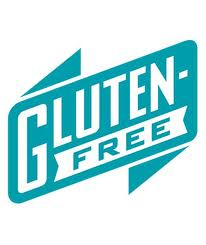Celiac disease
Celiac disease (also known as celiac sprue, gluten intolerance, non celiac gluten intolerance or non-tropical sprue) is a hereditary digestive disorder involving intolerance to gluten, usually occurring in young children, characterized by marked abdominal distention, malnutrition, wasting, and the passage of large, fatty, malodorous stools.
Celiac disease can be defined as a permanent intolerance to the gliadin fraction of wheat protein and related alcohol-soluble proteins (called prolamines) found in rye and barley. Celiac disease occurs in genetically susceptible individuals who eat these proteins, leading to an autoimmune disease, where the body’s immune system starts attacking normal tissue. This condition continues as long as these food products are in the diet.
The resulting inflammation and atrophy of the intestinal villi (small, finger-like projections in the small intestine) results in the malabsorption of critical vitamins, minerals, and calories.
According to our friends at Celiac.com: Celiac disease, also known as gluten intolerance, is a genetic disorder that affects at least 1 in 133 Americans. Symptoms of celiac disease can range from the classic features, such as diarrhea, weight loss, and malnutrition, to latent symptoms such as isolated nutrient deficiencies but no gastrointestinal symptoms. The disease mostly affects people of European (especially Northern European) descent, but recent studies show that it also affects Hispanic, Black and Asian populations as well. Those affected suffer damage to the villi (shortening and villous flattening) in the lamina propria and crypt regions of their intestines when they eat specific food-grain antigens (toxic amino acid sequences) that are found in wheat, rye, and barley. Oats have traditionally been considered to be toxic to celiacs, but recent scientific studies have shown otherwise. This research is ongoing, however, and it may be too early to draw solid conclusions.
Because of the broad range of symptoms celiac disease presents, it can be difficult to diagnose. The symptoms can range from mild weakness, bone pain, and aphthous stomatitis (if you’re like me you have no idea what that is!) to chronic diarrhea, abdominal bloating, and progressive weight loss/gain. Other symptoms can include headaches, fatigue, valuable mineral and nutrient deficiencies and related auto immune disorders.
And if the pain and discomfort alone aren’t enough to scare you into going gluten-free, get this: if a person with the disorder continues to eat gluten, studies have shown that he or she will increase their chances of gastrointestinal cancer by a factor of 40 to 100 times that of the normal population! Further, gastrointestinal carcinoma or lymphoma develops in up to 15 percent of patients with untreated or refractory celiac disease. It is therefore imperative that the disease is quickly and properly diagnosed so it can be treated as soon as possible.
Yes folks, this is a truly serious disease which needs to be taken seriously. It is not a fad diet, or a made up disorder.
As you’ll see, I refer quite a bit to the folks at Celiac.com, and here again is another helpful resource from them which discusses the associated risks with Celiac disease and gluten sensitivities. Don’t be fooled by the word “sensitive”; you sensitive folks are just as susceptible!
So, what’s next you ask?
Well, if you’re like me, now that I knew what I was suffering from, I needed to know how to begin. So I’ve put together some helpful resources on how to go gluten-free, including how to maintain a gluten-free home, a list of safe and unsafe ingredients so you know what to avoid, and some common cross-reactive issues and other immune responses which can pop up.
So take your time, and browse through the rest of the site. There’s a lot here, and it can be overwhelming (I know!) but please don’t get discouraged. Read what you can until you feel you need a break, and take a break from it. Return once you’re ready to learn more, and remember, you’re not alone! One key component I intend to build out is a forum for you to share your thoughts, stories, fears, struggles, successes, etc. I think having a strong support group is what gave me the courage to try something so completely different from my old way of thinking, eating and living. And to be honest, I have never felt and looked better or been happier!
To good health!
